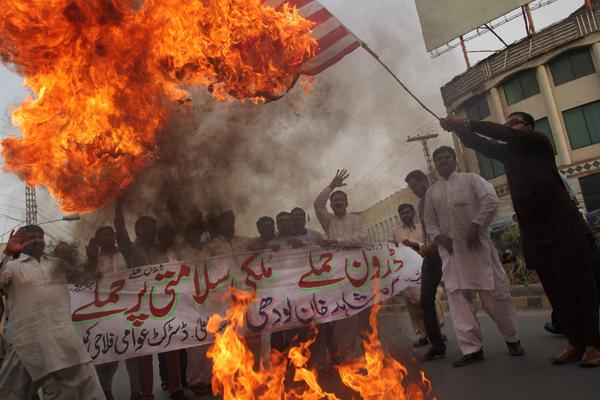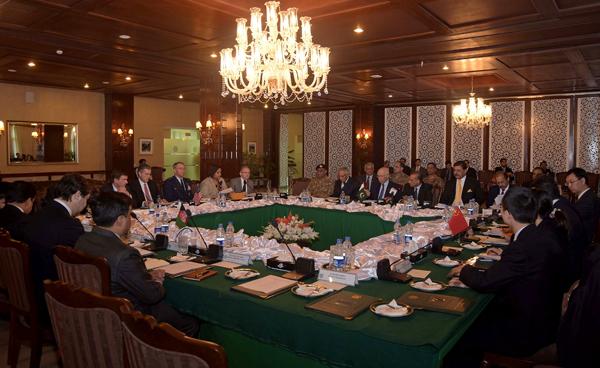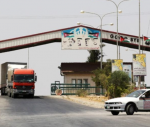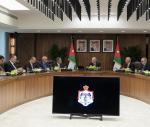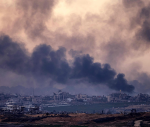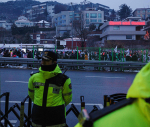You are here
Afghanistan declares Taliban leader dead in US drone attack
By AFP - May 22,2016 - Last updated at May 22,2016
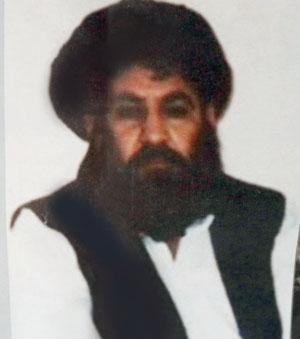
This August 1, 2015, file photo shows Taliban leader Mullah Mansour. Mansour was killed in an air strike on Saturday (AP photo)
KABUL — Afghanistan on Sunday said Taliban leader Mullah Akhtar Mansour was killed in a US bombing raid, the first confirmation from regional officials of his death, which marks a potential blow to the resurgent militant movement.
The Taliban have not commented officially on Saturday’s attack, the first known US assault on a top Afghan Taliban leader on Pakistani soil, which could scupper any immediate prospect of peace talks.
The apparent elimination of Mansour, who had consolidated power following a bitter Taliban leadership struggle over the past year, could also spark new succession battles within the fractious movement.
US officials maintained they had no definitive proof of his death in multiple drone strikes, authorised by President Barack Obama, in the remote Pakistani town of Ahmad Wal in Balochistan province.
But both Afghanistan’s main spy agency, and the country’s Chief Executive Abdullah Abdullah, asserted that Mansour had been killed in the attack.
“Mansour was being closely monitored for a while... until he was targeted along with other fighters aboard a vehicle,” Afghanistan’s National Directorate of Security said in a statement.
The deaths of Taliban leaders have often been falsely reported. Mansour himself was rumoured to have been killed last December.
Pakistani security officials said they recovered two bodies charred beyond recognition from a smouldering vehicle at the scene of the attack.
The passenger, who is suspected of being Mansour, was said to be returning from Iran and was using a Pakistani passport with the name Muhammad Wali.
The driver — who also died in Saturday’s attack — was a civilian who worked for a local rental company, according to the officials, contradicting the US account that he was a “second combatant”.
The Taliban have refused to confirm their leader’s death but a member of the Quetta Shura, the Taliban’s leadership council, told AFP that Mansour had been unreachable on his mobile phone since Saturday night.
“We are not sure if something is really wrong or he purposely switched off his phone fearing an attack,” he told AFP on condition of anonymity.
Mansour was formally appointed head of the Taliban in July last year following the revelation that the group’s founder Mullah Omar had been dead for two years.
The group saw a resurgence under the firebrand supremo with striking military victories, helping to cement his authority by burnishing his credentials as a commander.
Imminent threat
The Taliban briefly captured the strategic northern city of Kunduz last September in their most spectacular victory since they were toppled from power in 2001.
The southern opium-rich province of Helmand is also almost entirely under insurgent control.
“Mansour posed... an imminent threat to US personnel, Afghan civilians and Afghan security forces,” US Secretary of State John Kerry said during a visit to Myanmar Sunday.
“He was also directly opposed to peace negotiations.”
But Mansour’s apparent death was not immediately seen as likely to push the Taliban closer to peace talks. It could press them to show they are still able to wage an aggressive battle, observers say.
“The war has been going on for so long, the Taliban has so many leaders and so much ability to function at the local level even without strong central guidance, that we would be well advised to keep expectations in check,” said Michael O’Hanlon of the Brookings Institution think-tank.
The drone attack came just days after representatives from the US, China, Pakistan and Afghanistan held another round of negotiations in Islamabad aimed at reviving long-stalled direct peace talks between the Afghan government and the Taliban.
However pressure has been building in recent months for the United States to return to direct attacks on the Taliban, particularly via air strikes.
NATO ended its combat mission in Afghanistan in December 2014, pulling out the bulk of its troops, although a 13,000-strong residual force remains for training and counterterrorism operations.
The Taliban, who announced the start of their annual spring offensive last month, have already stepped up their campaign against the Western-backed Kabul government for the season.
If Mansour’s death is confirmed, his two newly named deputies — influential religious leader Haibatullah Akhundzada and Sirajuddin Haqqani — could likely step up to fill the power vacuum.
Omar’s son Mullah Yakoub, although deemed young and inexperienced, is also favoured by some Taliban commanders for the leader’s post.
Related Articles
KABUL, Afghanistan — The death of the leader of the Afghan Taliban in a US drone strike last week could make the insurgent movement stronger
KABUL — The Afghan Taliban on Wednesday announced Haibatullah Akhundzada as their new chief, elevating a low-profile religious figure in a s
ISLAMABAD — Pakistan Monday hosted four-country talks aimed at luring the Afghan Taliban back to the negotiating table with the Kabul govern


